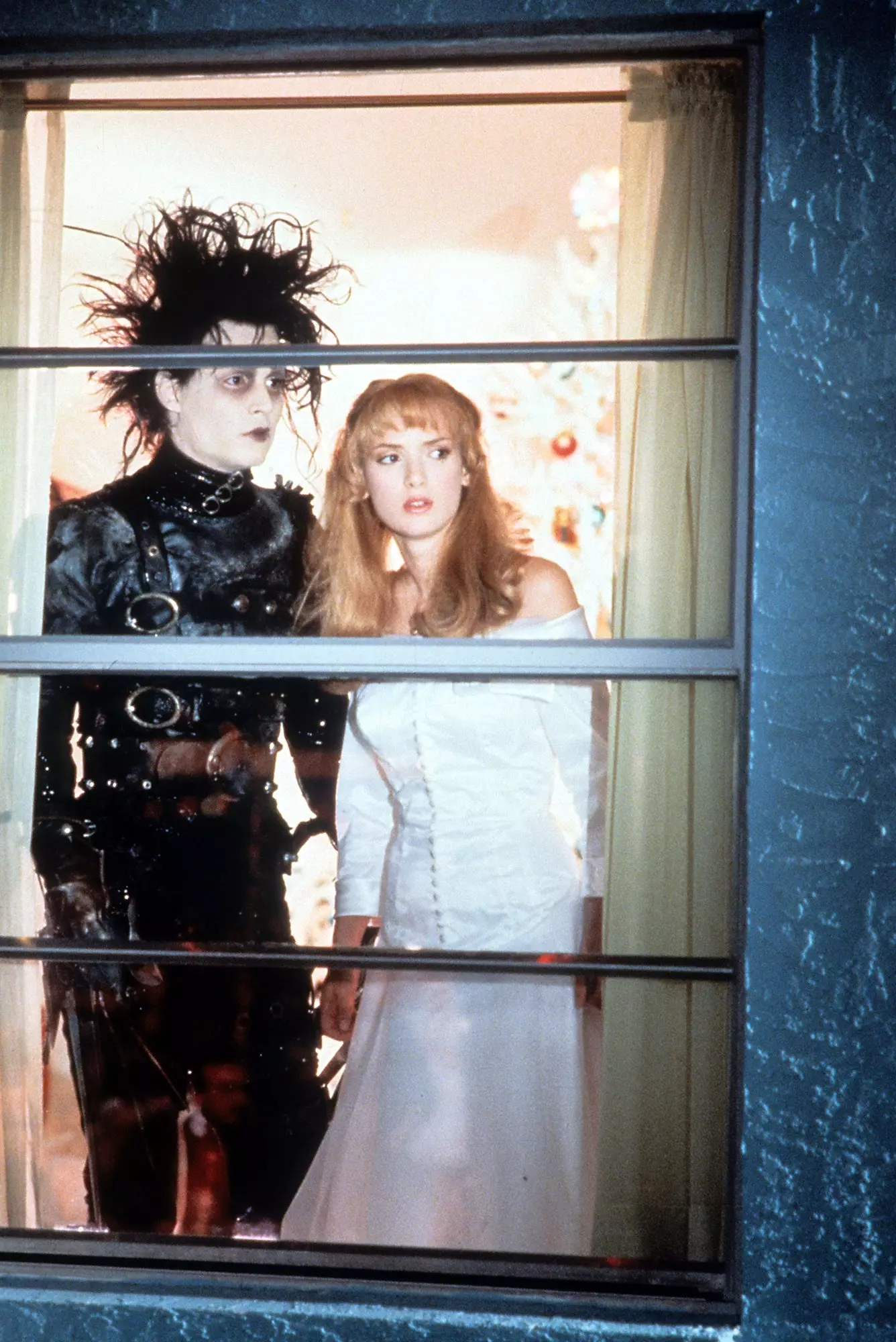
Johnny Depp and Winona Ryder in a scene from 'Edward Scissorhands'.
Good film directors make you dream. The best take you on a journey to a world of your own, theirs, from which you would never want to return. Tim Burton's is unmistakable, and the foundation of his imaginary, which has an unconditional legion of fans (many of them, the Nightmare Before Christmas bag at the ready) were embodied in a masterpiece of Christmas cinema: Eduardo Scissorhands.
Somewhat reviled (misunderstood, perhaps?) in recent years, Burton deserves to be relocated to the Olympus from which he never deserved to be expelled, although Alicia's version of him is, to say the least, debatable. Not for good people. Grateful people who in the 90s compulsively swallowed, to the astonishment of their parents, a film that, apparently, had no head or tail. Even the person who shaped his script, Caroline Thompson said of the story at first that it was the dumbest thing she had ever read. The delicate fable of an unfinished boy, who instead of hands had a kind of scissors.
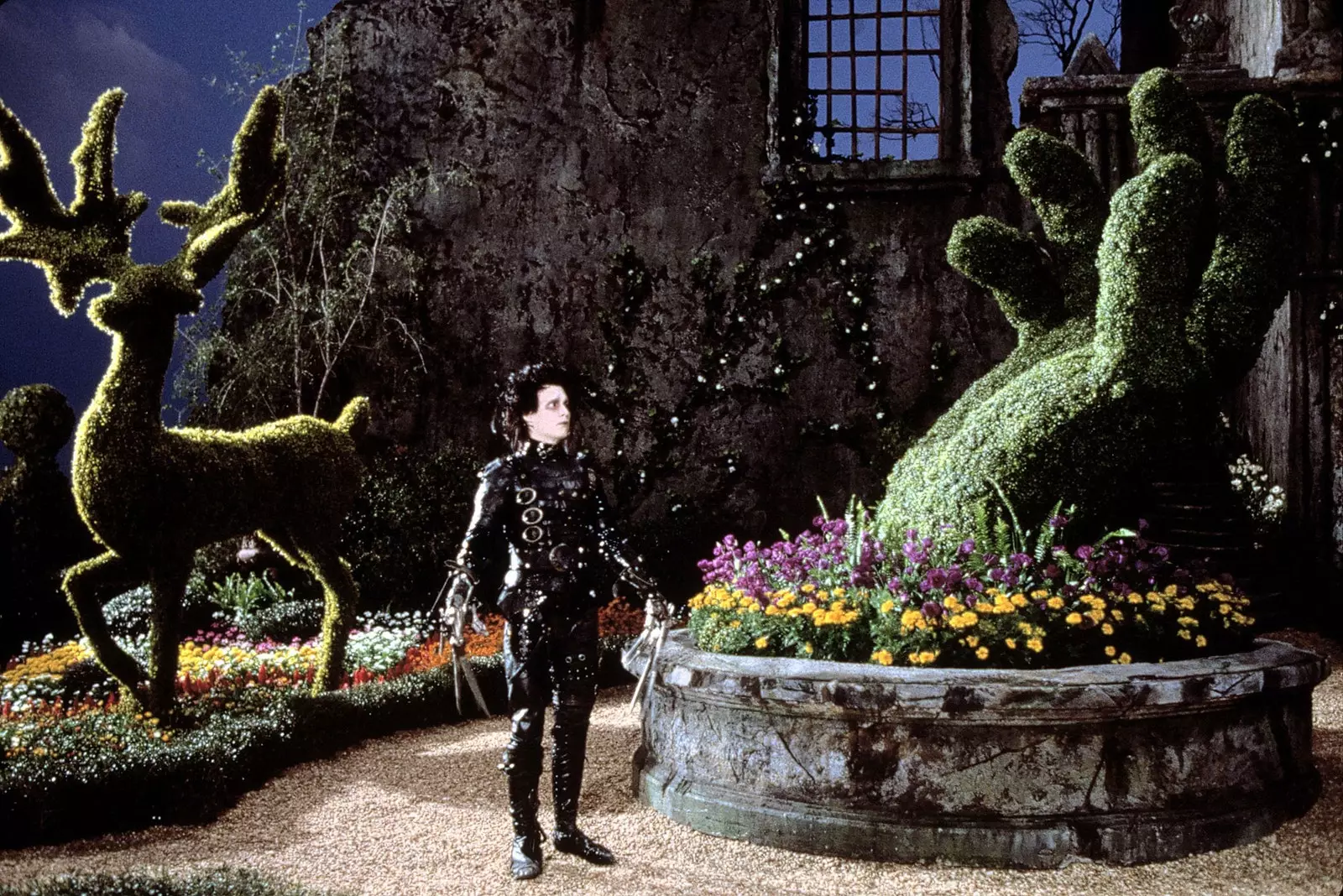
The idea of a boy who can create beauty and destroy at the same time was the embryo of 'Edward Scissorhands'.
The best of this film released in 1990, a dark, funny and endearing fantasy starring Johnny Depp and Winona Ryder, is that it has a lot of reading, but if you stick to the most superficial... it's still an original and delicious wonder. How could it be otherwise, was born from the head of a teenager, Burton himself, who felt isolated and misunderstood in his Burbank neighborhood, California. From his unhappiness a drawing sprang up, that of a skinny, disheveled boy who had long, sharp blades for hands, capable of creating and destroying, as the filmmaker himself told later.
Burton carried out his project, not without difficulty, thanks (or despite) the success of his first Batman (1989). On a fairly modest budget –compensating with torrents of imagination and personality– achieved millions of collections worldwide and become a cult film that has not aged not one iota. He himself has said that It's not his best movie but it is his favorite, and it's probably ours too.
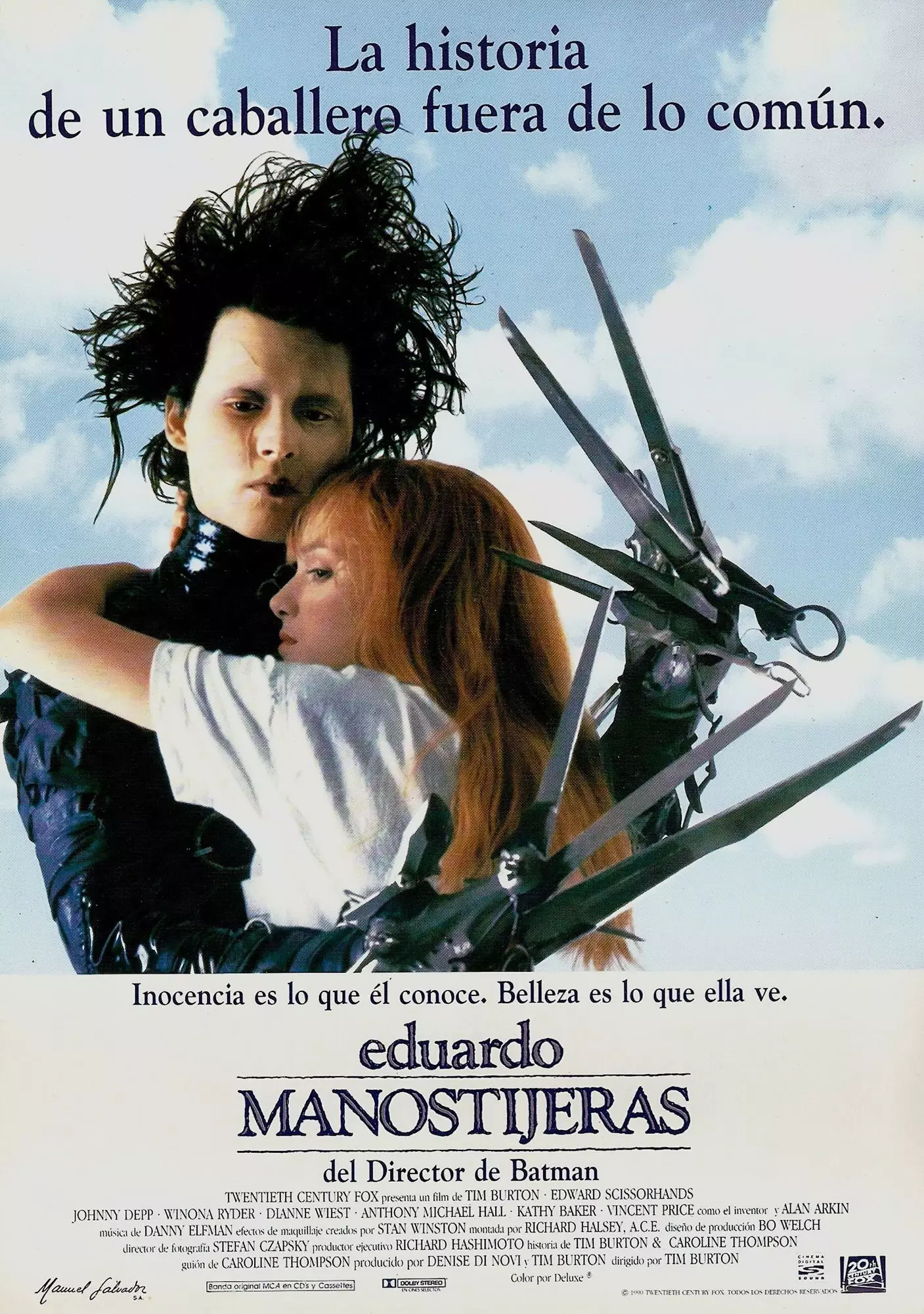
Tim Burton's gothic tale marked an entire generation in the 90s.
Here are nine of the many, many things we learned from watching Eduardo Scissorhands:
1. There is no Christmas without the dark tale of him. We already told you a few days ago about this tradition –of which Dickens himself is a part– and for which Burton paints them alone. Not in vain, years later, his animated fantasy The Nightmare Before Christmas (Henry Selick, 1993) would also become a cult film. The sweetened and well-intentioned nature of Christmas cries out for a counterpoint, a shiver that reminds us that the other side of the coin is dark and that is what achieves the balance.
two. Loneliness is a fundamental issue that only the greatest, even more so at Christmas. Burton's has been a great source of inspiration for him, which has raised the idea of the misfit to its most poetic expression. He has always allied himself with those who understand him best: Winona Ryder had been bullied for dressing 'as a boy' at school she and she played with feeling (dyed blonde in the classic Burton style, as Christina Ricci would later wear in Sleepy Hollow) a teenager who first feels suspicion and rejection towards Edward and then... you know the rest. They say that Depp cried like a baby when he read the script for the first time, and since then, has followed Burton to the confines of the best (and worst) cinema: Ed Wood (1994), Sleepy Hollow (1999), Charlie and the Chocolate Factory (2005), Corpse Bride (2005), Sweeney Todd (2007), Alice in Wonderland (2010), Dark Shadows (2012) and Alice Through the Looking Glass (2016, produced by Burton).
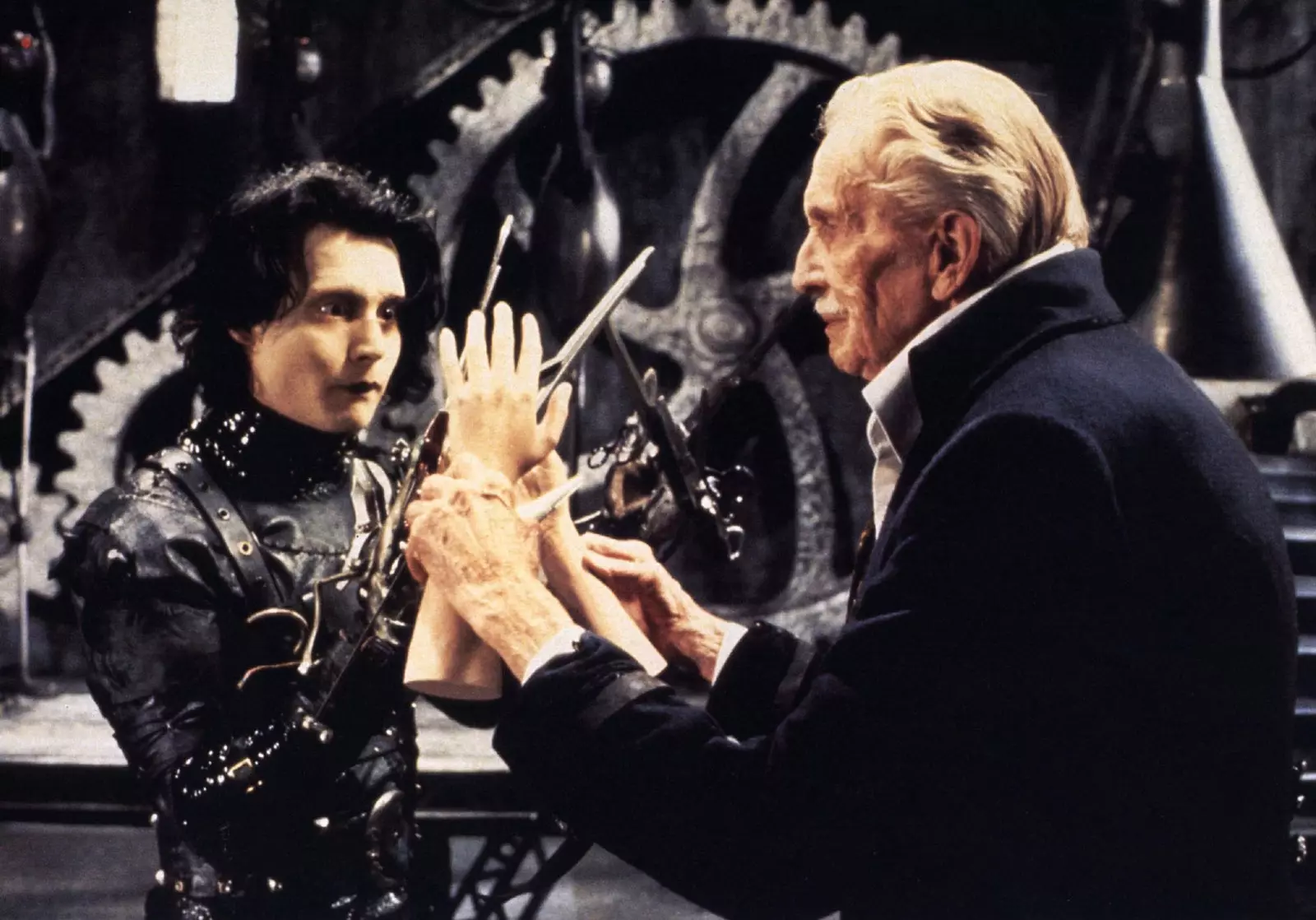
The character of Vincent Price was created specifically for him.
3. Christmas is the best time for us to welcome someone who arrives... with a different message. Edward, who has grown up in a gothic castle, does not fit in with the (nightmarish) kitsch and colorful architecture of the urbanization where the family that welcomes him lives. Burton set out to reproduce the Burbank of the 1950s in which he had grown up and he found it in Lutz, a city in Florida that represents that world of apparent perfection. under which there is more than one crack. A stranger arrives in this micro-universe and reminds us that we are too obsessed with our futile and empty lifestyle, blind to those in need by our side, unable to really hug someone who is out of the norm.
Four. Christmas is also wildly romantic, and this film is proof of that. Yes, we have plenty of examples in the history of cinema, but that beginning and ending with echoes of Wendy and Peter Pan, that impossible love (reminiscent of Beauty and the Beast and The Phantom of the Opera, that scene where Edward (Depp) carves an ice angel and Kim (Ryder) dances under the snowflakes... they're hard to beat. More if they are starred by one of the most popular couples of the nineties. Depp fell madly in love with his co-star (remember that Winona Forever tattoo he wore for years) and We can't blame him, he happened to all of us.
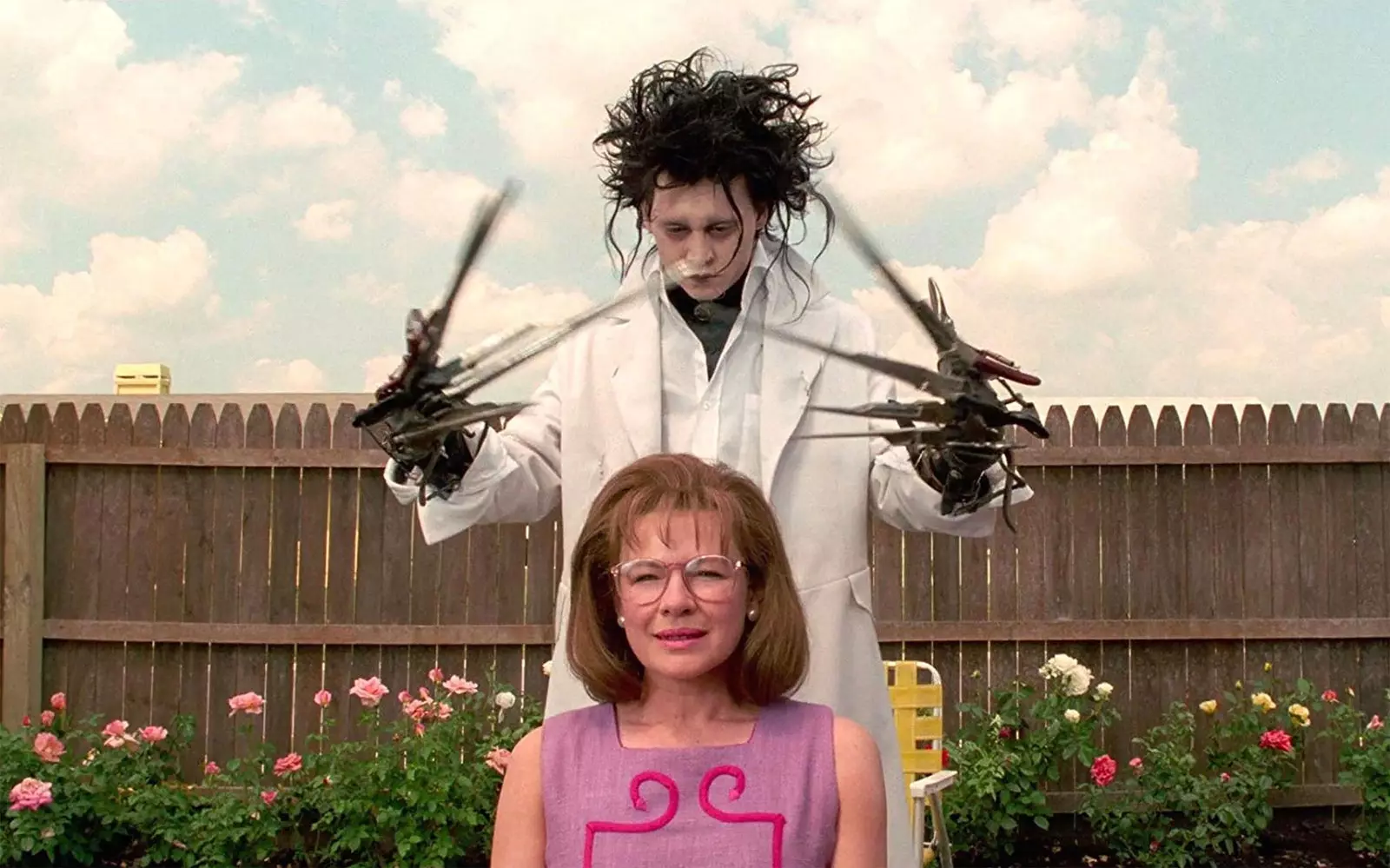
Johnny Depp and Dianne Wiest in a memorable scene from the movie.
5. It is always a good time to travel, even more so at Christmas. Whether to return home, to find a new or to go to the place that is strangest to us, as it happens to Edward, and find an unexpected treasure. And, like Edward, it's time to travel light. Burton's unique sense of humor reaches inspiring heights as Edward is dressed to blend in with his surroundings, layering his clothes over the armor he wears. To the spectators of the (modest) Spain of the 90s, in addition, he made us travel to a place where people had more than one car, there were water mattresses, dryers and houses with gardens behind.
6. Tragedy is always just around the corner (even if it's Christmas). And the doomsayer on duty (like the character of O-Lan Jones) will be there to remember it. If you are different, at first you will be the center of attention, but there will come a time when you stop being exotic... and return to your gothic mansion, surely with a broken heart. The good and the bad, the beautiful and the painful, life and death are sides of the same coin, and nothing happens to accept the second and make room for it in our most beautiful fables. The figure of the creator, embodied by Vincent Price as Dr. Frankenstein it is another tragic element of the story, also beyond the screen. The role was created specifically for him and should have been longer, but the actor was very ill with emphysema and Parkinson's, so the appearance of him was finally reduced.
7. A mother is a mother. She although she is not yours. In the film she is played by the wonderful Dianne Wiest –“Avon calls!”– and it seems that the character was inspired by the screenwriter's mother, Caroline Thompson, who had a habit of bringing strangers home. Wiest built an archetypal role typical of the most emotional films (and Christmas, we insist), that of the 'locatis' mother who blindly trusts a stranger and disrupts everyone's life. See the recent two installments of Paddington (if you haven't seen them, you're taking a while).
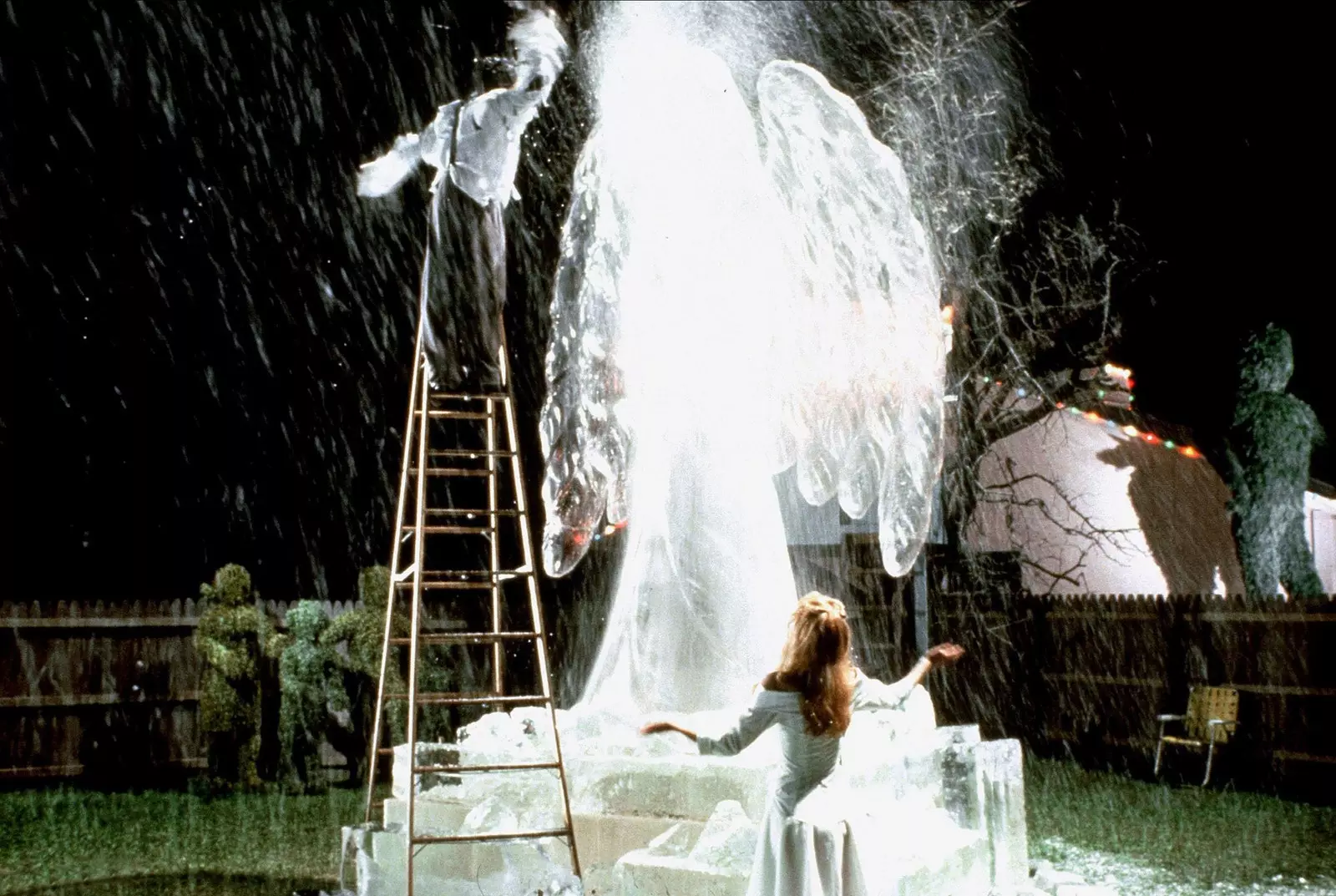
Winona Ryder's famous dance under the 'snow'.
8. Music is not everything but almost. And more if it is composed by Danny Elfman. This was his fourth collaboration with Burton and is, by the composer's admission, his most beloved and personal work. Burton initially dreamed of making a musical out of Edward Scissorhands – later it has actually been brought to the stage – but he finally scrapped the idea. The movie album is immortal and you can listen to it on Spotify.
9. Movies for (adults who are still) children are the best. Legend has it that when Tom Cruise was considering playing the role of Edward, he asked questions such as "But how can he go to the bathroom? How could he survive without eating for so many years? "... And so you can't. And for the record, we love Tom Cruise. But act like children. It is the only way.
